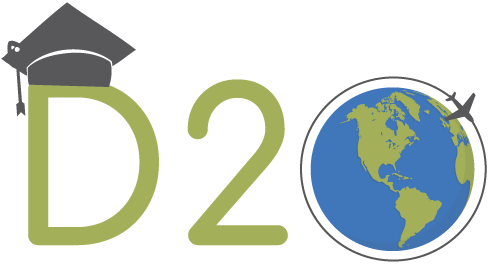SOUTH KOREA
The Land of the Morning Calm
South Korea, a captivating blend of ancient traditions and cutting-edge technology, has emerged as a major player on the global stage. From its vibrant pop culture to its delicious cuisine, the Land of the Morning Calm offers a unique and exciting experience for students seeking a world-class education abroad. This comprehensive guide will provide all the information you need to consider South Korea as your next study destination.
Facts about South Korea:
- Official name: Republic of Korea
- Capital: Seoul
- Population: 51.7 million
- Currency: Korean Won (KRW)
- Language: Korean (official), English (widely spoken)
- Time zone: UTC+9
- Climate: Four distinct seasons - spring, summer, autumn, and winter
- Religion: Buddhism, Christianity (mainly Protestantism)
Famous sports:
- Baseball
- Football (Soccer)
- Taekwondo
- Archery
- E-sports
Geography:
South Korea occupies the southern half of the Korean peninsula, bordering North Korea to the north. It is a mountainous country with a long coastline, offering stunning landscapes and diverse natural beauty.
Why Pick South Korea?
- High-quality education: South Korea boasts a globally recognized education system, consistently ranking among the top performers in international assessments like PISA. Universities offer a wide range of programs in various disciplines, taught by renowned professors and equipped with cutting-edge facilities.
- Cultural immersion: Immerse yourself in a rich and vibrant culture, steeped in ancient traditions and modern trends. Experience the unique blend of history, technology, and artistic expression that defines South Korea.
- Affordable living: Compared to other developed countries, South Korea offers relatively affordable living expenses. Students can enjoy a comfortable lifestyle without breaking the bank.
- Career opportunities: South Korea's booming economy and thriving job market provide excellent opportunities for international graduates. Many multinational companies and international organizations have offices in South Korea, offering diverse career paths.
- Safety and security: South Korea is a safe and secure country with low crime rates. This creates a comfortable and stress-free environment for international students.
- Efficient transportation: South Korea boasts an extensive and efficient transportation network, including subways, buses, and high-speed trains. This allows students to easily travel across the country and explore its diverse regions.
- Technological advancement: South Korea is a world leader in technology, offering students access to cutting-edge facilities and resources. This fosters innovation and prepares them for the demands of the global job market.
Education System:
Types of institutions:
- Universities: Offer four-year undergraduate degrees, master's degrees, and doctoral degrees.
- Colleges: Offer two-year associate degrees and four-year bachelor's degrees in specific fields.
- Vocational schools: Provide practical training in various trades and skills.
Qualifications for each degree:
- Undergraduate: High school diploma or equivalent, standardized test scores (TOEFL/IELTS), application essays, letters of recommendation.
- Master's: Bachelor's degree, standardized test scores (TOEFL/IELTS), letters of recommendation, research statement.
- Doctoral: Master's degree, research proposal, strong academic record.
Lifestyle:
- Tuition fees: Tuition fees vary depending on the type of institution and program. Public universities are generally more affordable than private ones. Scholarships and financial aids are available to international students.
- Living expenses: The cost of living in South Korea varies depending on the city and lifestyle. Students can expect to spend around USD 700-1000 per month on accommodation, food, transportation, and other necessities.
- Student visa or employment permit process: International students must obtain a student visa before entering South Korea. The process involves submitting documents to the Korean embassy or consulate in your home country. After completing their studies, graduates can apply for a work permit to stay and work in South Korea.
Student Permit or Employment Permit Process:
International students require a student visa to study in South Korea. The application process involves:
- Obtaining an official letter of acceptance from a Korean university
- Applying for a Certificate of Admission (COA): This document verifies your enrollment and is required for visa application.
- Completing a visa application form and submitting required documents: These include your passport, academic transcripts, financial statements, and health certificates.
- Passing a medical examination: This is mandatory for all visa applicants.
- Attending an interview at the Korean embassy or consulate: This is an opportunity to clarify your intentions and answer any questions about your study plans.
Post-study work:
The Korean government offers various programs and initiatives to support international graduates who wish to work in South Korea. These programs provide valuable opportunities for graduates to gain professional experience and advance their careers.
South Korea offers several options for international students to work after graduation:
- D-10 visa: Allows graduates to work for up to one year in a field related to their studies.
- D-9 visa: Provides opportunities for foreign professionals with specialized skills to work in specific industries.
- Start-up visa: Enables entrepreneurs to establish and run their own businesses in South Korea.
Job market/Employment opportunities :
South Korea's strong economy offers numerous job opportunities for international graduates. There is a high demand for skilled professionals in various sectors, including technology, engineering, finance, and healthcare.South Korea has a dynamic and diverse job market. Some key sectors with strong demand for skilled professionals include:
- Technology: Semiconductor manufacturing, IT infrastructure, and advanced research and development
- Manufacturing: Automotive, electronics, and shipbuilding
- Finance and banking: International trade and financial services
- Healthcare: Medical research, biotechnology, and pharmaceuticals
- Education: English language teaching and academic research
Famous universities:
South Korea boasts several world-renowned universities, recognized for their academic excellence and research output. Some of the most prestigious institutions include:
- Seoul National University
- Korea Advanced Institute of Science and Technology (KAIST)
- Pohang University of Science and Technology (POSTECH)
- Yonsei University
- Korea University
South Korea presents a compelling opportunity for Indian students seeking a transformative educational experience. With its high-quality education system, vibrant culture, and promising job market, South Korea is an ideal destination for personal and professional growth. Start exploring your options today and embark on an exciting journey towards your academic and career goals in South Korea!
Note:
This guide offers a broad summary of studying in South Korea. It's crucial to conduct thorough personal research, seek expert advice, and proceed with caution while planning, ensuring consent from a guardian.


